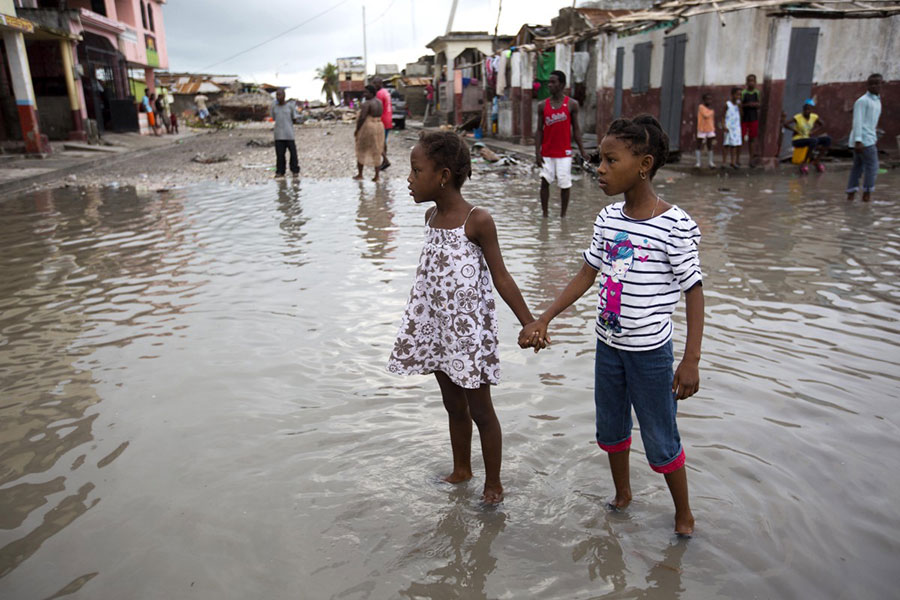Hurricane Matthew ravaged Haiti and Secretary-General Ban Ki-moon announced Monday that the United Nations need almost $120 million to fund help for the country. The aftermath of the hurricane not only left hundreds of deaths but thousands exposed to waterborne diseases and the continued cholera crisis.
According to Secretary-General Ban, 1.4 million people Haitians need help to settle and to guarantee them clean water after Matthew wiped off several towns and villages from the country. Food is also a primary concern because almost all the crops and food reserves were affected by the heavy rains and the hurricane.

Cholera and waterborne disease are also a priority when it comes to national and international help. The $120 million fund also seeks to reduce the risks of contracting cholera or diarrhea.
Haiti was already facing a cholera crisis, where cases of the disease were increasing with each day. Almost 10 thousand people have died from the illness since 2010, and only in 2016, there has been 27 thousand suspected cases of cholera.
Education is also a priority after more than 300 schools were destroyed by the natural disaster, said Mr. Bantold told reporters at UN.
Monday, Mr. Ban launched a Flash Appeal to help Haiti. The measure goals are to fund the international humanitarian community to respond to “the most urgent needs,” which include the cases exposed above. The UN request is for $119,850 to assist people hit by the storm that landfall in the country October 4.
The launch will cover three months of humanitarian help in Haiti, said Secretary-General during the announcement. He also emphasized that some money has been already giving to start humanitarian actions. The UN Central Emergency Response Fund (CERF) gave $5million to the cause to begin humanitarian projects, and a loan of $8 million has been asked for the United Nations Children’s Fund (UNICEF) to respond to the cholera crisis in Haiti.
While international aid comes, tensions continue to rise in Haiti where there is no food nor clean water safety. Corpses increased the risk of people getting sick and overflowing rivers and stagnant water just make the health situation worst.
“The United Nations is mobilizing across all fronts to support the people, the Government and local groups such as the Red Cross in getting recovery under way as quickly as possible. I call on the international community to show solidarity and generosity – and to work together effectively in responding to this emergency,” stated the Secretary-General.

Cholera, waterborne disease, diarrhea: Children are more vulnerable than adults
Mark Vincent, UNICEF Representative for Haiti, has warned that overflowing rivers, stagnant water and animal and human corpses are key factors in the spread of many diseases in the country and represent a bigger risk than Hurricane Matthew.
Vincent also stated that every day that goes by increases the chances of children to get sick with cholera and said the UN is in a race to save those children before the disease gets to them.
Cholera continues to be a health problem even after the tropical storm because only one in three people in Haiti has access to proper latrines. Something similar happens with clean water: less than three in five Haitians can enjoy fresh water, which increases the risk of getting sick with any waterborne disease.
Mr. Vincent mentioned that people from rural areas faced an even worse reality. Far away from the city, one in four people uses proper latrines and one in two have access to clean water.
The Flash Appeal will work on sound water, sanitation and health systems to help prevent and eliminate cholera in Haiti, said Mr. Ki-moon.
Source: United Nations
